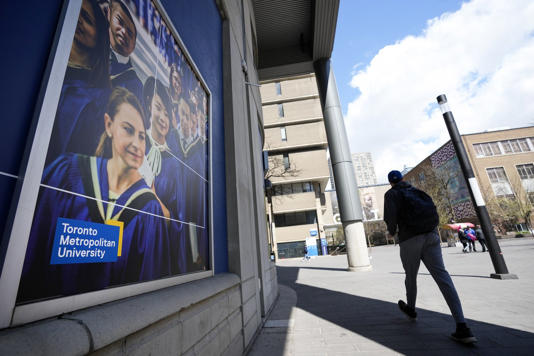Featured
article
- Get link
- X
- Other Apps
Universities Brace for Impact as International Student Cap Takes Effect
Canadian colleges and universities are grappling with significant financial challenges following the federal government's decision to cap international student permits. The 35% reduction in study permits, which brought the number down to an estimated 360,000 for 2024, has led to widespread layoffs, hiring freezes, and reductions in services across the post-secondary education sector.
The Council of Ontario Universities, which includes 20 of the province's top institutions, anticipates a combined loss of $330 million this fiscal year and $600 million in the upcoming fiscal year. "We're seeing across-the-board cuts in programming and services, layoffs, hiring freezes, deferred capital investments," said Steve Orsini, president of the council.
In British Columbia, students are experiencing reductions in library hours and services, as well as limited access to academic advisers. "The work that we do is going to continue in terms of advocating for more funding, especially now more than ever," said Jessie Niikoi, chair of the British Columbia Federation of Students.
The cap on international students has also led to the cancellation or delay of several student residence projects. "It's had a profound negative effect on the sector at a time when Ontario universities are facing significant financial challenges," Orsini added.
Immigration Minister Marc Miller defended the cap, stating that the international student system was set up to attract talent to fill key roles in the labor market but had become "overheated." However, he emphasized that addressing the funding challenges facing universities is not the federal government's responsibility.
Despite the financial strain, both the B.C. and Ontario governments have increased funding for post-secondary institutions to help mitigate the impact of the cap.
The loss of tuition revenue from international students, who typically pay significantly higher fees than domestic students, is being compounded by tuition freezes and insufficient operating grants. "Universities really are facing a perfect storm," Orsini said.
As institutions continue to navigate these financial challenges, the focus remains on advocating for more funding and finding ways to sustain quality education and services for all students.
Popular Posts
Trump's Six Words: "I'm Going to Stop the Wars"
- Get link
- X
- Other Apps
Smart Savings for a Sharp School Start: Canadian Parents’ 2025 Guide
- Get link
- X
- Other Apps




Comments
Post a Comment